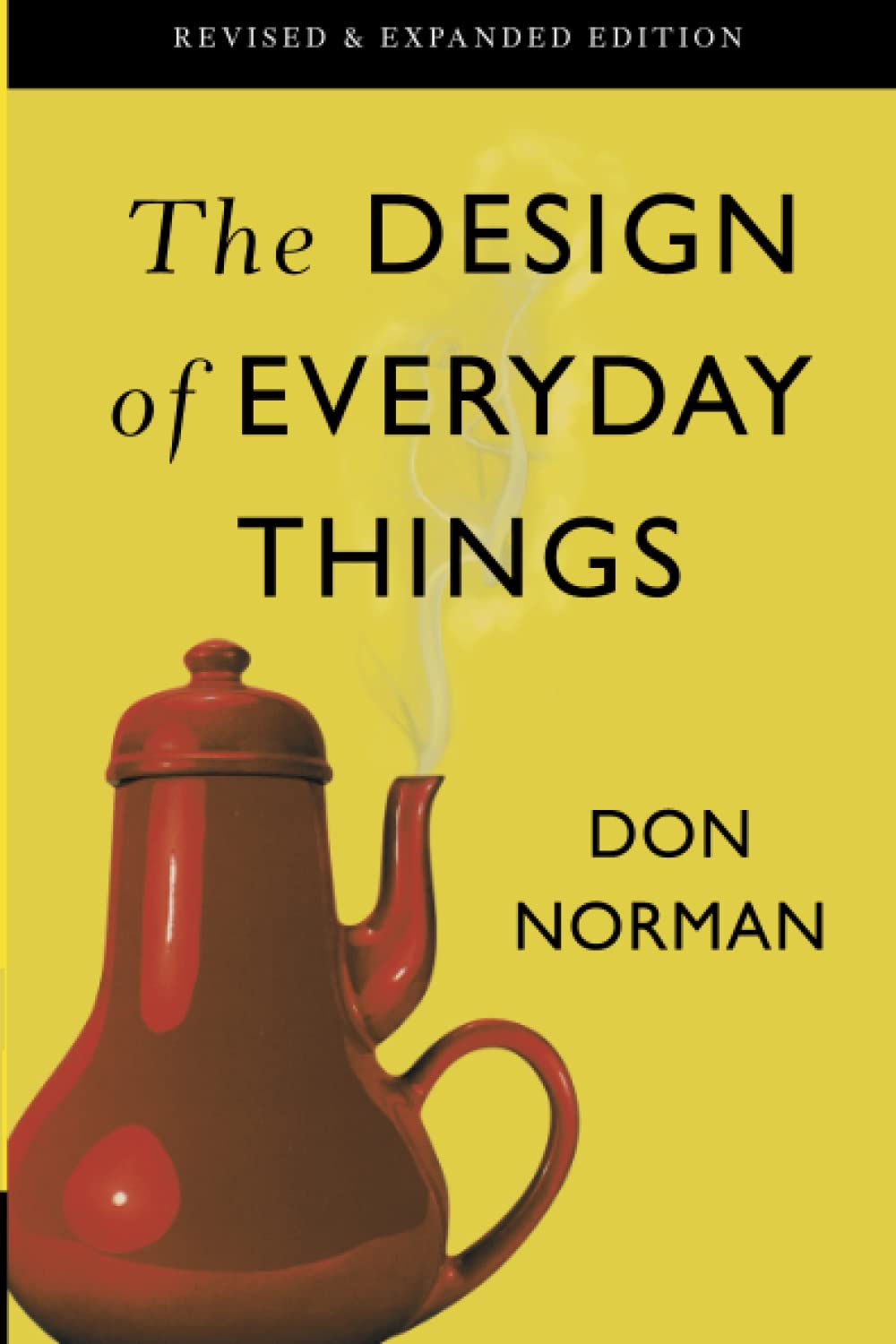Highlights from The Design of Everyday Things by Don Norman

Highlights from this book
-
Although it is best when people have considerable knowledge and experience using a particular product—knowledge in the head— the designer can put sufficient cues into the design—knowledge in the world—that good performance results even in the absence of previous knowledge.
-
Knowledge how—what psychologists call procedural knowledge—is the knowledge that enables a person to be a skilled musician, to return a serve in tennis, or to move the tongue properly when saying the phrase “frightening witches.”
-
Knowledge of—what psychologists call declarative knowledge—includes the knowledge of facts and rules.
-
Experts minimize the need for conscious reasoning. Philosopher and mathematician Alfred North Whitehead stated this principle over a century ago: It is a profoundly erroneous truism, repeated by all copy-books and by eminent people when they are making speeches, that we should cultivate the habit of thinking of what we are doing. The precise opposite is the case. Civilization advances by extending the number of important operations which we can perform without thinking about them. (Alfred North Whitehead, 1911.)
-
As we move away from many physical aids, such as printed books and magazines, paper notes, and calendars, much of what we use today as knowledge in the world will become invisible. Yes, it will all be available on display screens, but unless the screens always show this material, we will have added to the burden of memory in the head. We may not have to remember all the details of the information stored away for us, but we will have to remember that it is there, that it needs to be redisplayed at the appropriate time for use or for reminding.
-
The sociologist Erving Goffman calls the social constraints on acceptable behavior “frames,” and he shows how they govern behavior even when a person is in a novel situation or novel culture. Danger awaits those who deliberately violate the frames of a culture.
-
Standards simplify life for everyone. At the same time, they tend to hinder future development. And, as discussed in Chapter 6, there are often difficult political struggles in finding common agreement. Nonetheless, when all else fails, standards are the way to proceed.
-
Bath and kitchen faucet design ought to be simple, but can violate many design principles, including: • Visible affordances and signifiers • Discoverability • Immediacy of feedback Finally, many violate the principle of desperation: • If all else fails, standardize. Standardization is indeed the fundamental principle of desperation: when no other solution appears possible, simply design everything the same way, so people only have to learn once.
-
Put the knowledge required to operate the technology in the world. Don’t require that all the knowledge must be in the head. Allow for efficient operation when people have learned all the requirements, when they are experts who can perform without the knowledge in the world, but make it possible for non-experts to use the knowledge in the world. This will also help experts who need to perform a rare, infrequently performed operation or return to the technology after a prolonged absence.
-
Engineers and businesspeople are trained to solve problems. Designers are trained to discover the real problems. A brilliant solution to the wrong problem can be worse than no solution at all: solve the correct problem.
-
The power of the unaided mind is highly overrated. Without external aids, deep, sustained reasoning is difficult. Unaided memory, thought, and reasoning are all limited in power. Human intelligence is highly flexible and adaptive, superb at inventing procedures and objects that overcome its own limits. The real powers come from devising external aids that enhance cognitive abilities.
-
I dream of the power of individuals, whether alone or in small groups, to unleash their creative spirits, their imagination, and their talents to develop a wide range of innovation. New technologies promise to make this possible. Now, for the first time in history, individuals can share their ideas, their thoughts and dreams. They can produce their own products, their own services, and make these available to anyone in the world. All can be their own master, exercising whatever special talents and interests they may have. What drives this dream? The rise of small, efficient tools that empower individuals.
-
I dream of a renaissance of talent, where people are empowered to create, to use their skills and talents. Some may wish for the safety and security of working for organizations. Some may wish to start new enterprises. Some may do this as hobbies. Some may band together into small groups and cooperatives, the better to assemble the variety of skills required by modern technology, to help share their knowledge, to teach one another, and to assemble the critical mass that will always be needed, even for small projects. Some may hire themselves out to provide the necessary skills required of large projects, while still keeping their own freedom and authority.